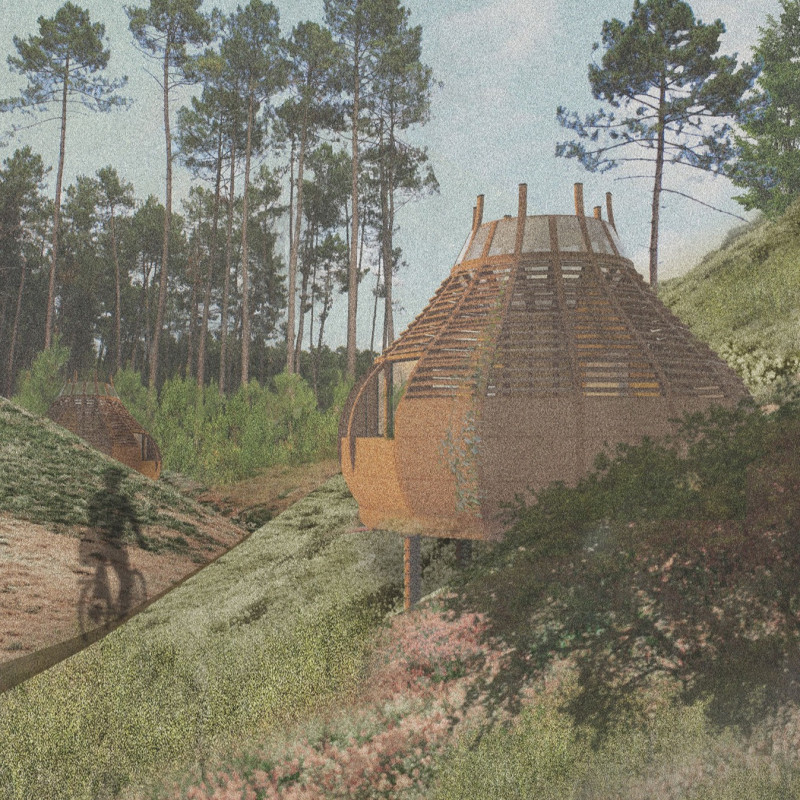5 key facts about this project
The project serves as an accommodation facility, comprising multiple units designed for varying guest needs, including sleeping quarters, meditation spaces, and communal gathering areas. Each unit is thoughtfully placed to maximize natural light and views, allowing occupants to feel connected to the landscape. The careful selection of materials enhances durability and sustainability, aligning with the ecological values of the region.
Unique Design Approaches
"BLOOM" sets itself apart through its innovative use of materials and strong ecological considerations. Features such as a rainwater harvesting system and a specialized irrigation approach illustrate a commitment to environmental sustainability. The incorporation of local materials like Eucalyptus, cork, and laminated oak not only provides structural support but also blends seamlessly with the surrounding flora.
The architectural design emphasizes passive solar strategies, utilizing glass panels and strategically positioned openings to enhance natural ventilation and daylighting. This focus on energy efficiency allows for reduced reliance on mechanical systems, promoting an overall more sustainable living environment.
Spatial Configuration and Functionality
The arrangement of spaces within "BLOOM" has been designed to promote convenience and enhance user experience. Sleeping and meditation areas are positioned for optimal tranquility, while semi-outdoor spaces facilitate social interaction among guests. Innovative storage solutions are integrated throughout the units, addressing the functional needs of transient occupants while maintaining a streamlined aesthetic.
The adaptable nature of the design allows for both connected and standalone configurations, enabling flexibility based on visitor preferences. The minimalist interiors and careful detailing contribute to a welcoming atmosphere, encouraging guests to engage with both the architectural spaces and the natural surroundings.
For a comprehensive understanding of the architectural design, including detailed architectural plans, sections, and further insights into the design approach, readers are encouraged to explore the project presentation in depth.


























